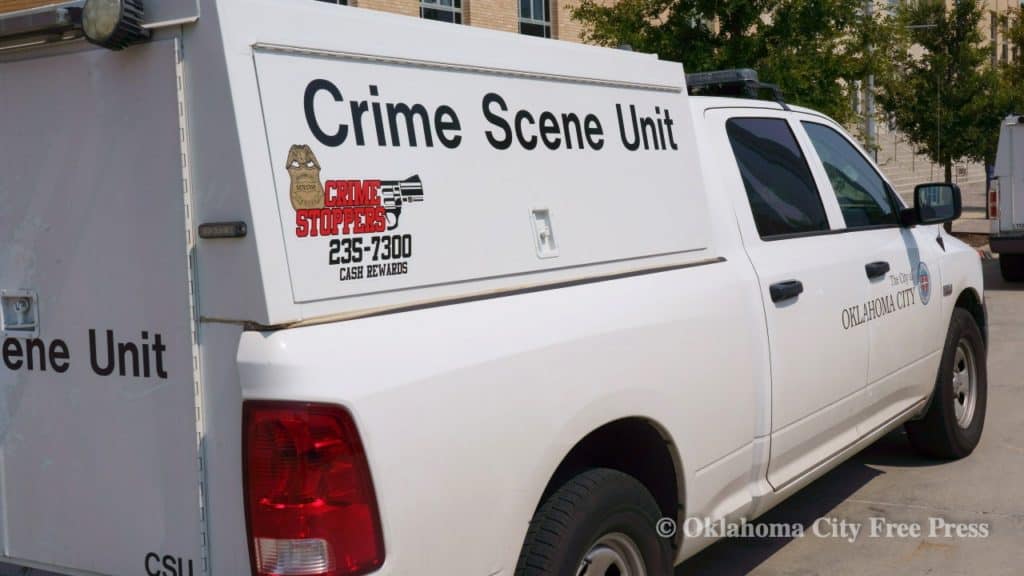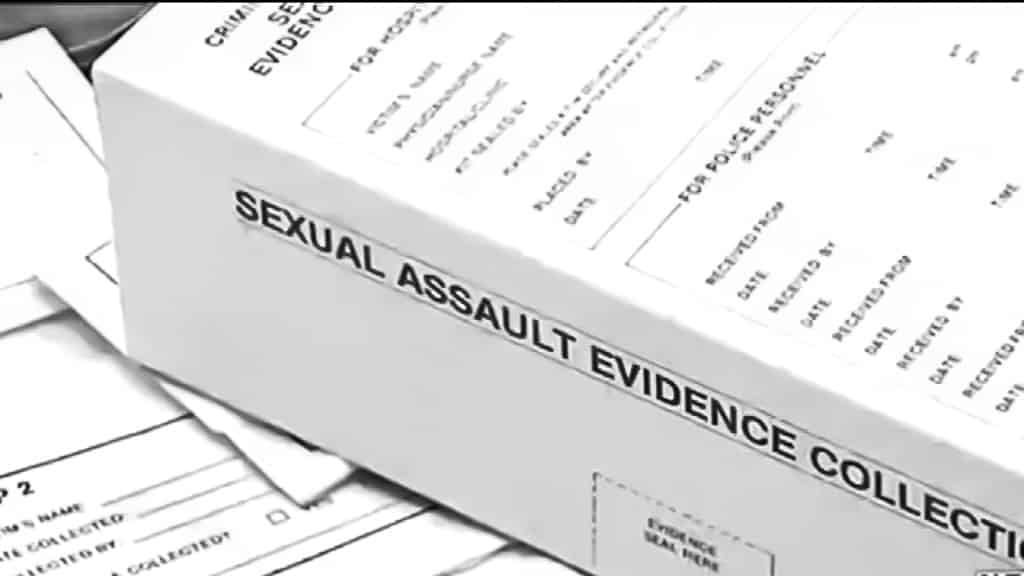Last Updated on February 26, 2023, 8:06 AM | Published: February 26, 2023
OKLAHOMA CITY — Oklahoma’s long-term, statewide backlog of untested rape kits persists and is still dwindling slowly.
This comes on the heels of a bureaucratic lapse at Oklahoma Governor Kevin Stitt’s office that threatened the processing of the kits.
And, we are one year removed from an embarrassing, potentially hurtful breach of the City of OKC’s sexual assault survivors’ data.
Yet, the Oklahoma City Police Department says that the city’s own backlog has been clear for years.
The state backlog
A rape kit is the physical catalog of DNA and forensic evidence collected by law enforcement following a sexual assault. The evidence is stored and intended to be entered into DNA processing and testing in an attempt to match the collected evidence to a possible perpetrator.
For years, in states across the country, thousands of rape kits went unprocessed and untested, building up a nationwide backlog that prompted outrage and calls for legislation.

In Oklahoma, that legislation came to fruition in 2018 with the creation of a rape kit reform task force managed by the state Attorney General’s office and a database managed by the Oklahoma State Bureau of Investigation.
In 2018, there were reportedly more than 7200 untested rape kits in Oklahoma’s backlog.
As of January 2023, that number has reportedly dropped to 2888, according to a statement from OSBI spokesperson Brook Arbeitman, with more than 1200 of those coming from the existing backlog.
But, in contrast, the City of Oklahoma City’s Police Department has recovered from earlier problems and cleared its rape kit backlog years ago.
City of OKC provides contrast
In Oklahoma City, however, police say that there is currently no backlog of untested rape kits, thanks in part to the same partnership that resulted in the unfortunate data breach in February 2022.
“The screening examination of all backlogged kits was caught up and completed in September 2021,” Msgt. Gary Knight of the OKCPD’s Public Information Office told Free Press. “Since that date we have been processing only the newly-submitted kits as they come in.”

The department’s ability to catch up and clear out their own backlog was possible thanks to access to its own in-department lab, a luxury that many smaller and significantly less-funded city PDs can’t afford.
“The department implemented a requirement for every kit to be screened in 2018,” Knight said. “This was proactive in preventing any future backlog build up.”
OKCPD’s lab also took a more recently conceived approach to test and process kits quickly.
“The laboratory was an early adopter of a Y screening process,” Knight explained, “which allowed us to rapidly screen kits specifically for male DNA.”
Vendor help & data breach
According to Knight, the OKCPD’s success with clearing their own backlog was a joint effort, including the help of an outside “vendor” that helped with some testing.
“The success was a three-pronged combination of adopting a new approach early, department commitment to each SA case, and some external lab help for volume reduction,” he explained.
That “external lab help” came from OKC-based DNA Solutions, Inc., an independent DNA testing lab that the department contracted for two years to help process some volume of rape kits.
In February 2022, DNA Solutions saw a major data breach that was later blamed on third-party software that the lab used to store and catalog personal information and test results.
The exact number of individuals whose information was stolen, or the number of those that had been processed by DNA Solutions for sexual assault cases, could not be determined.
OKCPD issued a citywide letter to everyone that had provided a rape kit during the years that DNA Solutions was contracted to inform them of the breach.
State task force lapse
The Sexual Assault Forensic Evidence Task Force, or SAFE, was established by the 2018 legislation introduced by State Senate Minority Leader Kay Floyd (D-Oklahoma City) to address the statewide backlog of untested rape kits.
At the end of January this year, the task force was inexplicably dissolved when Governor Stitt’s office said they forgot to renew it.
The task force remained inoperative for one week, from February 1st to February 8th, when Governor Stitt issued Executive Order 2023-03, reinstating the SAFE.
No defined time table was issued for the task force in the new executive order, instead stating that it would continue indefinitely “until the Task Force completes its directives.”
No statement was made as to what kind of setback in the processing and testing of backlogged rape kits could be seen as a result of the lapse.
Repeated attempts were made by Free Press to reach the OSBI for comment and confirmation of the late-January numbers.
Those attempts were not returned.
Brett Fieldcamp has been covering arts, entertainment, news, housing, and culture in Oklahoma for nearly 15 years, writing for several local and state publications. He’s also a musician and songwriter and holds a certification as Specialist of Spirits from The Society of Wine Educators.











